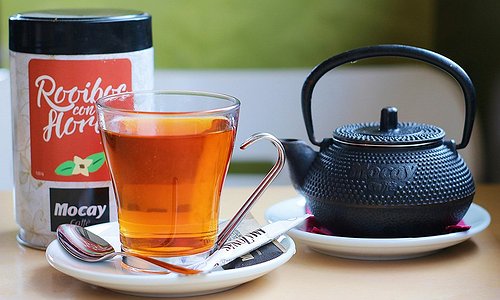Woman's health through the ages
Celebrating and inspiring women is what Women’s Day this all about this month. Staying in top physical and mental shape should be a priority for all women, no matter their age, believes Bernadette Campbell, Group Nursing Service Manager at Clinix Health Group.
“As a woman ages, her body undergoes several dramatic changes – and as the decades go by, different health concerns need to be top of mind,” she says. “If you are aware of these concerns, and if you get certain screening tests and practice healthy behaviours, you will be able to stay healthy, no matter what your age.”
Screening tests such as mammograms and Pap smears can detect diseases early when they are easier to treat. Some women need certain screening tests earlier, or more often than others.
“If you are at high risk for diabetes, heart disease, breast cancer or other conditions, talk to your primary health care professional about any special considerations you should know about,” says Campbell.
Here are some tips to help keep you in top shape through the ages:
TWENTIES
Women in their twenties should have annual Pap smears, particularly if they are sexually active. However, if you have risk factors such as multiple sex partners, a weakened immune system or HIV infection, you may need more frequent Pap screenings. These screenings are important as they test for sexually transmitted diseases, as well as cervical cancer, the presence of cysts, etc.
“As a large percentage of women become sexually active in their twenties, it is essential that contraceptives are used,” says Campbell. “To choose the correct contraception, it is essential that women consult with their gynaecologist or GP on the matter.”
THIRTIES
At this stage in their lives, many women have started or are starting their families. Annual Pap smears are still of vital importance, especially to check for growths such as fibroids, which may interfere with pregnancies.
“Fertility begins to decrease after 30, so it may take longer to fall pregnant than it would for a younger woman,” says Campbell. “The chances of miscarriage and pregnancy-related health problems increase, especially in women aged 35 and older.”
Women in their thirties should also start doing thorough breast examinations, particularly if they have a history of breast cancer in the family.
When a woman hits her thirties, her metabolism also starts to slow down. To maintain a healthy weight, it's important to have an exercise programme that includes cardio and weight-training activities, and to eat a well-balanced healthy diet.
FORTIES
As most women have completed their families by this stage in their lives, it is very important to prevent unwanted pregnancies. However, the use of hormonal contraceptives should be cut back as they can lead to stroke and heart disease, which is why many women this age consider being sterilised.
If a woman does fall pregnant in her forties, it is essential to visit a gynaecologist as soon as possible. At this age, there is an increased risk of birth defects and chromosomal abnormalities such as Down syndrome.
Regular breast examinations are still important at this age, but from 40 onwards, mammograms should be conducted every year.
“Many women have had hysterectomies at this stage of their lives, and are placed on hormones. If you are on any kind of hormones, regular mammograms become even more important,” says Campbell.
Peri-menopause also starts at this age, and women can expect to start experiencing mood swings and hormonal changes.
FIFTIES
Menopause hits in the fifties, but Campbell advises that women should still be weary of falling pregnant. “There have been incidents of women falling pregnant in their fifties mistaking a missed period for menopause. A halt in menstruation is not the only sign of menopause, hot flushes are also an important indication. Consult your doctor about how to deal with these life changes – in many instances women are placed on Hormone Replacement Therapy (HRT).”
Annual mammograms continue to play an important role in preventative healthcare, particularly if women are using HRT.
“The levels of oestrogen become lower and lower as women age, and an oestrogen deficiency causes osteoporosis, which is a thinning of the bones, so it is important to be tested for this,” advises Campbell.
Various cancers become a very real threat at this age, and in addition to regular mammograms, women should be screened for colorectal cancer.
“Colorectal cancer is often hereditary, however regular screening is important, even in the absence of family history,” she says. “Early assessment is very important.”
Signs to watch out for include irregular bowel actions such as diarrhoea or constipation, even when you are eating properly and drinking enough water. There are various screening methods, but you have to speak to a surgeon for the best advice.
SIXTIES AND SEVENTIES
As women get older, it is essential that they remain healthy and active in order to maintain a good quality of life. Exercise does not have to be strenuous - a regular habit of brisk walking several times a week is all you need.
You should continue with all the screenings and exams that became important as you age, but once you are in your sixties, you should also do regular bone mineral density exams – at least every two years.
Women find that their vision, hearing and senses of smell and taste gradually start to decline. Regular eye exams are essential. Even if your vision seems fine, test for eye conditions such as cataracts, dry eye conditions, and glaucoma.
Women might also start to experience problems with bladder control, which can be caused by the weakening of muscles and ligaments in the pelvic region. This can be treated with special exercises and changes in diet. Gastrointestinal complaints such as constipation and heartburn may become more troublesome and should be checked if they occur frequently.
“Ultimately, a woman’s journey through life can be far more pleasurable if she is healthy and happy – and in today’s world it is easy to take charge of your own life to ensure a happy existence. Let’s celebrate our health this Women’s month,” Campbell concludes.
Compiled by Jacqui Rorke / Cathy Findley PR on behalf of Clinix
Main Image URL
Thumbnail URL



